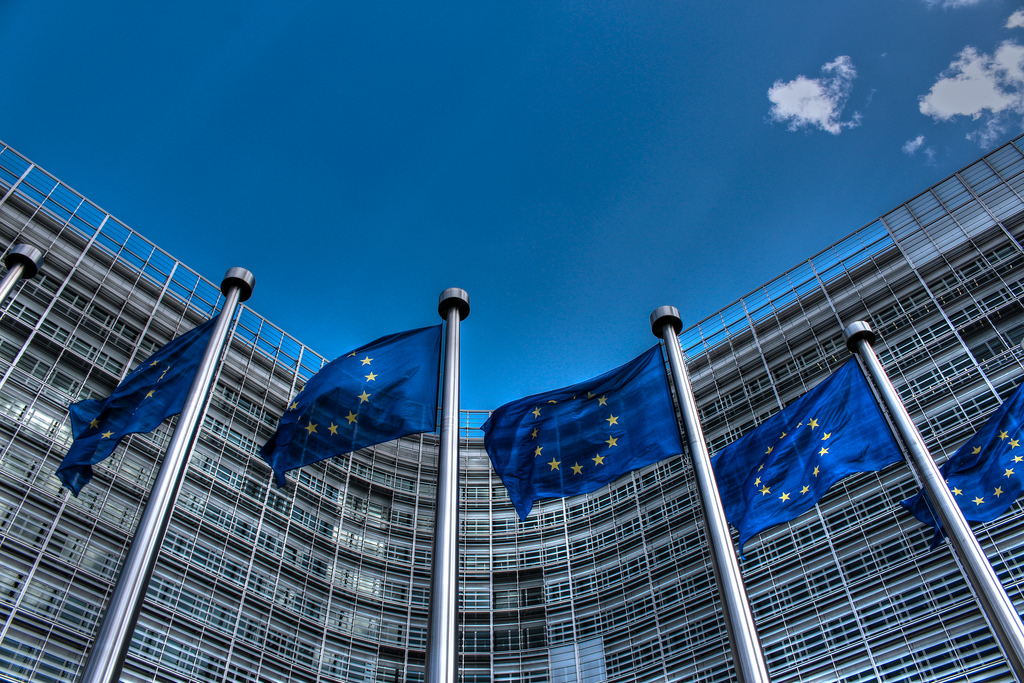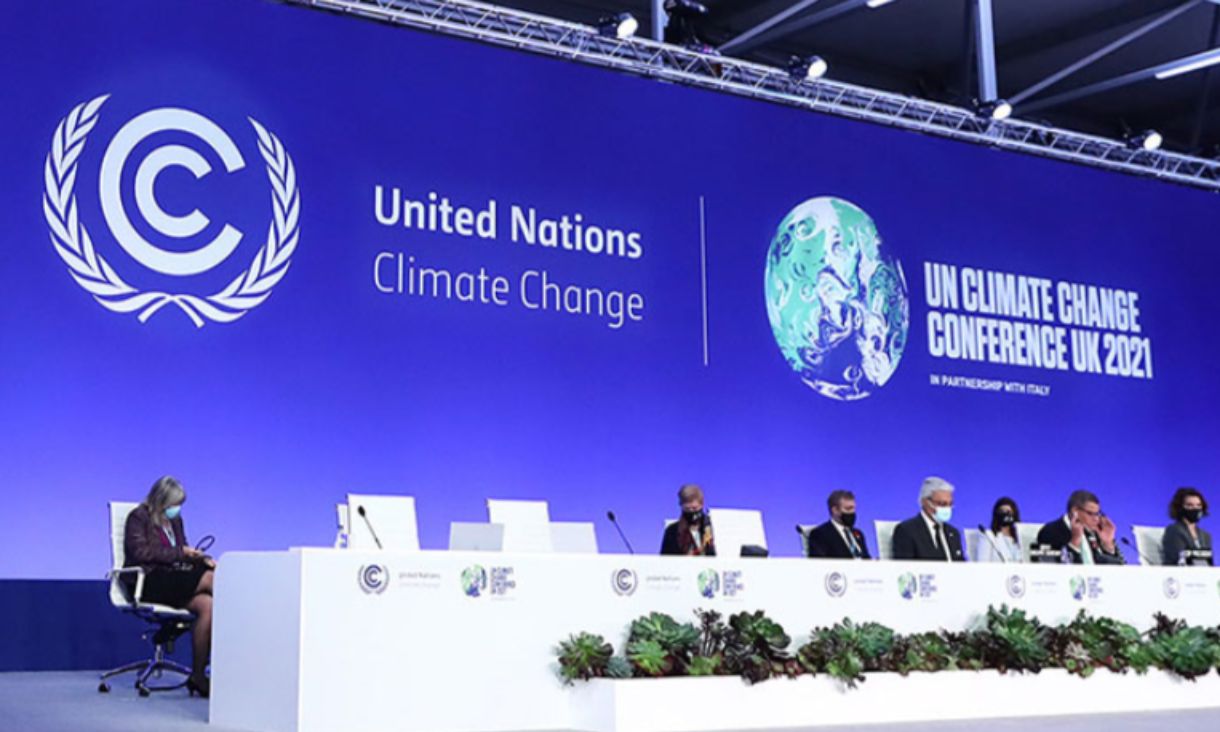by Konnor Terzakis, intern, EU Centre of Excellence
English translation available below.
Πρώτη Εμφάνιση του κορονοϊού στην Ελλάδα
Σύμφωνα με τον Εθνικό Οργανισμό Δημόσιας Υγείας (ΕΟΔΥ), το πρώτο θετικό κρούσμα του κορονοϊού εμφανίστηκε στην Θεσσαλονίκη στις 26 Φεβρουαρίου στο Αριστοτέλειον Πανεπιστήμιο Θεσσαλονίκης (ΑΠΘ). Η πρώτη θετική εμφάνιση προήρθε από μια κυρία που είχε επιστρέψει από την Ιταλία, και ταυτόχρονα καταγράφηκαν άτομα που είχαν ταξιδέψει στο Ισραήλ και στην Αίγυπτο. Στην συνέντευξή του, ο καθηγητής επιδημιολογίας, Κος Παρασκευής, ανέφερε ότι πιθανόν ο κορονοϊός να είχε έρθει νωρίτερα στην Ελλάδα. Επίσης ο καθηγητής, Σωτήρης Τσιόδρας, υποστήριξε την ίδια γνώμη, όντως ο κορονοϊός είχε φτάσει στην Ελλάδα πριν την πρώτη καταγραφή.
Αποστασιοποίηση και καραντίνα
Η στάση της ελληνικής κυβέρνησης, να εφαρμόσει μέτρα απευθείας και να βάλει τον πληθυσμό σε κατ᾽οικόν περιορισμό ήταν σωτήριο για τους πολίτες. Έτσι, τα κρούσματα και οι θάνατοι διατηρήθηκαν σε χαμηλούς αριθμούς σε σχέση με τα υπόλοιπα ευρωπαϊκά κράτη. Τα μέτρα της καραντίνας ήταν μια δύσκολη απόφαση για την κυβέρνηση αλλά υποστηρίχθηκε και από την Αρχιεπισκοπή. Αρχικά, η Ιερά Σύνοδος ήταν διστακτική αλλά με την πάροδο του χρόνου ακολούθησε τους κανόνες της πολιτείας. Κλείσανε οι εκκλησίες, εμπορικά καταστήματα, σχολεία, μικρά καταστήματα, και χώροι εστίασης. Η καμπάνια, «Μένουμε Σπίτι», βοήθησε στην κατανόηση των πολίτων να ακολουθήσουν τους κανόνες. Υιοθετήσαν την χρήση της μάσκας, την απόσταση δυο μέτρων, διατήρησαν μέτρα υγιεινής, και για να εγκριθεί η άδεια κυκλοφορίας των πολιτών ήταν υποχρεωτικό να ειδοποιήσουν τις αρχές με sms.
«Ελάτε στην Ελλάδα»
Μετά από ένα αποτελεσματικό τρίμηνο στις 13/6, ο Πρωθυπουργός Μητσοτάκης, ανακοίνωσε στην Ελλάδα και συγκεκριμένα στην μαγευτική Σαντορίνη ότι ήταν πλέον έτοιμοι να ανοίξουν για τουρισμό. Έστειλε μήνυμα στην παγκόσμια κοινότητα, «Ελάτε στην Ελλάδα». Τόνισε ότι η Ελλάδα είχε καταφέρει να διαχειριστεί την πανδημία και ο στόχος της κυβέρνησης είχε επιτευχθεί. Λοιπόν, η Ελλάδα ήταν ασφαλής για τους τουρίστες να επισκεφθούν. Εξήγησε ότι τα διαγνωστικά τεστ θα ήταν το πρώτο κριτήριο για να επιτρέψουν την είσοδο. Ασφαλώς υπήρξαν περιορισμοί για ορισμένες χώρες λόγω των αυξημένων κρουσμάτων.
Ο Υπουργός Υγείας, Κος Κικίλιας, και ο Υπουργός Τουρισμού, Κος Χάρης Θεοχάρης, πήραν το λόγο και ανακοίνωσαν ότι ο στόχος τους ήταν να εφαρμόσουν κανόνες για την καινούργια καθημερινότητα. Δηλαδή, λειτουργία των αεροδρομίων και των λιμανιών σε κράτη που δεν είχαν αυξημένα κρούσματα, παραδείγματος χάρη Αυστραλία, Νέα Ζηλανδία και Γερμανία.
Η δοκιμασία της καινούργιας καθημερινότητας
Ο υφυπουργός Πολιτικής Προστασίας και διαχείρισης κρίσεων, Κος Νίκος Χαρδαλιάς, προσάρμοσε τα στρατηγικά μέτρα για την δημόσια υγεία. Οι επισκέπτες από Σουηδία, Τσεχία, Βέλγιο, Ισπανία Ολλανδία και Μάλτα ήταν υποχρεωμένοι να κάνουν μοριακή εξέταση. Οι επισκέπτες από Αλβανία ήταν δεχτοί υπό τον όρο της 7ημερης απομόνωσης.
Με το ερχομό των επισκεπτών αυξήθηκαν τα κρούσματα που συνέβαλε στο δεύτερο κύμα και στην εφαρμογή επιπλέον μέτρων. Το ΣΚΑΙ δημοσίευσε ότι στις 28 Αύγουστο η Ελλάδα είχε 270 νέα κρούσματα, δυστυχώς, με πέντε θανάτους νέων και 35 στο νοσοκομείο διασωληνωμένους. Απαγορεύτηκε η λειτουργία καταστημάτων από τα μεσάνυχτα έως τις 7 το πρωί σε περιφερειακές κοινότητες της Αττικής, Μακεδονίας, Θράκης, Θεσσαλονίκης. Επίσης η Κρήτη, η Κέρκυρα, η Μύκονος και πολλά άλλα τουριστικά νησιά έκλεισαν την νυχτερινή διασκέδαση από τα μεσάνυχτα. Οι παραβάσεις επέβάλαν πρόστιμο 10,000 ευρώ.
Αμφισβήτηση των στατιστικών κρουσμάτων
Σήμερα, η ΕΟΔΥ καταγράφει ότι τα κρούσματα της πανδημίας έχουν φτάσει συνολικά στα 11.524, με 284 θανάτους. Μπορούμε να πούμε ότι αντιμετωπίζεται με σκεπτικισμό η στατιστική κρουσμάτων εφόσον πιστεύεται ότι ο κορονοϊός είχε φτάσει στην Ελλάδα πριν τις 28 Φεβρουαρίου. Ο καθηγητής, Ηλίας Μόσιαλος, είχε ειδοποιήσει την κυβέρνηση από τον περασμένο Μάρτιο, να επιτελέσει περισσότερα διαγνωστικά τεστ για ακριβείς αριθμούς κρουσμάτων.
The insidious enemy: Greece and COVID-19
During the initial wave of the pandemic, Greece was commended globally for its unexpectedly successful suppression of COVID-19, however, in the ensuing months the country’s reliance on tourism has placed it in a vulnerable position.
First recorded appearance of coronavirus in Greece
According to the National Organization of Public Health (EODY), the first confirmed case of coronavirus was recorded in Thessaloniki on 26 February at Aristotle University of Thessaloniki (AUTH) in a female traveller returned from Italy. However, travellers to Israel and Egypt were also found to be carriers. In an interview, Professor of Epidemiology, Dimitri Paraskevis, expressed the opinion that the virus had been introduced to Greece prior to its first recording. This opinion was also supported by Professor Sotiris Tsiodras, who was assigned to lead and subsequently credited for the country’s early response.
Distance and quarantine
The Greek government’s decision to implement measures immediately and to quarantine the population proved very effective in combatting the spread of the virus. Thus, case numbers and deaths were kept low compared to other European countries. The quarantine measures were a difficult decision for the government, due to the dire state of the Greek economy, but were also supported by the Archdiocese. Initially, the Holy Synod was critical of the measures but over time came to back them. This was vital given over 85% of the population is recorded as part of its congregation. Churches, shops, schools, and restaurants were all closed. The "We Stay At Home" campaign helped spread public awareness. The public adopted the use of masks, social distancing of two metres, the maintenance of hygiene measures, and the acceptance of the mandatory informing of authorities(police) by sms, when individuals were required to leave their homes for essential reasons.
"Come to Greece"
After an effective three-month quarantine period ended on 13 June, Prime Minister Mitsotakis announced in picturesque Santorini that Greece was now ready to open the country for tourism. Tourism made up nearly 30 per cent of Greece’s 2019 GDP. He sent a message to the world community: "Come to Greece", stressing that Greece had successfully suppressed the pandemic and the government's goal, making Greece safe for tourists, had been achieved. He outlined safety measures the country would employ to ensure the continued safety of tourists and Greek citizens alike, explaining that a negative COVID test result upon arrival would be the first criterion to allow entry. Travellers are selected based on an AI algorithm There would also be restrictions on entry for citizens of countries with large case numbers to avoid the risk of COVID-19 being introduced into Greece.
The Minister of Health, Vasilis Kikilias, and the Minister of Tourism, Haris Theocharis, announced new measures for what was to become a new (COVID) normal. Greece initially was only to allow entry to tourists from countries which had been successful in containing the virus, for example Australia, New Zealand and Germany.
The test of the new (COVID) normal
The Deputy Minister of Civil Protection and Crisis Management, Nikos Hardalias, adapted the strategic measures for public health. Visitors from Sweden, the Czech Republic, Belgium, Spain, the Netherlands and Malta were required to take a COVID test. Visitors from Albania were accepted on the condition of seven days isolation.
Despite these measures, the arrival of visitors led to an increase in case numbers which in turn led to the emergence of a second wave. Greek news network, SKAI, published that on 28 August, Greece had 270 new cases, 35 in hospital on life support, and five deaths. Stores are banned from trading between midnight and 7am in the regional communities of Attica, Macedonia, Thrace, and Thessaloniki. Nightlife entertainment venues on Crete, Corfu, Mykonos and many other tourist islands have to close from midnight. Non-adherence comes with a fine of €10,000.
Vague statistics pose a threat to Greece’s reputation
Current case numbers as reported by EODY have reached a total of 11,524, with 284 deaths. However, the accuracy of these numbers is treated with scepticism, firstly because it is likely that the first recorded case on 28 February was not the first case introduced into Greece, and secondly because the testing rate has been considered low by medical experts such as Professor Elias Mosialos who warned the government in March to carry out more diagnostic tests for accurate case numbers.







